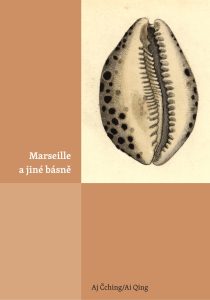
Ai Qing
In the 20th century, Chinese poets turned their backs on classical models and sought inspiration from European and American avant-garde. Ai Qing (1910–1996) belongs to the second generation of Chinese modernists. He initially studied painting in France, but after returning to China, he made his mark as a poet, enriching Chinese poetry with new, previously unknown dimensions. During the Anti-Japanese War, he moved to communist areas, where he became a significant protagonist of the critical stance taken by intellectuals in defense of the ideals of equality and freedom, whose suppression after 1949 laid the foundations of the cultural policy of the People’s Republic of China. In this bilingual selection of his predominantly early poetry, the poet is presented both as a playful experimenter and observer of the kaleidoscopic diversity of Europe, and as a storyteller who captures the poverty and hardships of life with authentically simple words. The book includes an extensive study of the poet’s life and work in the context of the times, highlighting his longing for freedom and firm opposition to Chinese tradition.
